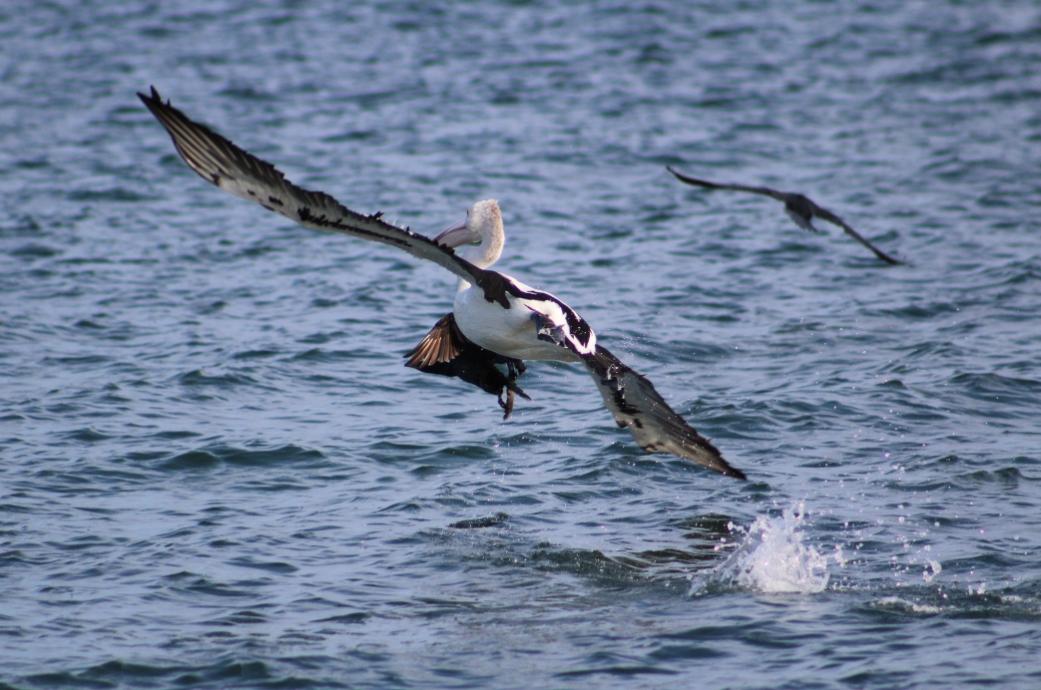Independent environmental report shows Station Beach off leash dog trial would be ‘ill advised’

Station Beach bird life
The Palm Beach Protection Group released an independent environmental report into the potential impact of off leash dog activity on Station Beach (on the Pittwater side of Palm Beach) this week. The report shows allowing off leash dogs will damage ecologically important seagrass.
There are extensive seagrass beds located adjacent to the estuarine beach, including a large area of an endangered population of seagrass, Posidonia australis, which is listed under the Fisheries Management Act 1994.
The report, which was commissioned by Palm Beach Protection Group and developed by Australian environmental assessment company Aquation Pty Ltd, specifically considers the impact off leash dogs will have during the Council’s proposed trial times when there will be very low tides, which will expose seagrass to direct physical harm and long-term damage.
It concludes that the trial being considered by the Northern Beaches Council in its current form is ill advised due to the concentration of potentially damaging activity and the heightened impact from invasive alga species Caulerpa taxifolia on the northern part of the Station Beach seagrass meadow.
Commenting on the report’s findings, Palm Beach resident Richard Kovacs said, “This report shows why this trial must not go ahead. Seagrass meadows must be protected because they are ecologically important.”
“Our pristine beach is already under stress from human pollution, adding pollution and physical damage from dogs will only increase this threat.
“Attempting to accommodate an off leash dog beach around a highly environmentally sensitive area, using signage and tidal markers, which we consider will be ignored as per existing practice, highlights just how unsuitable Station Beach is,” Mr Kovacs said.
According to the report, the potential impacts of off leash dog activity on seagrass meadows near Station Beach include:
- Physical damage: Physical damage to the seagrasses would be caused by tearing seagrass structures by dog activity. An erosion patch may occur if sufficient damage is localised in one area. Most significant is the potential negative effect of dog activity and faeces on seagrass meadows at low tide.
- Nutrients from dog faeces: An excess of nutrients in the surrounding water can lead to excessive growth of algae. These algae can significantly reduce the quantity and quality of light reaching the seagrass, thereby reducing growth rates. The dominant seagrass in the area already experiences considerable overgrowth by epiphytic algae, and a relatively small additional nutrient input could have disproportionately large consequences.
- Increased sedimentation within the meadow: Seagrass helps bind soft sediment leading to higher water clarity. Damaged seagrass from increased dog activity may lead to increased sedimentation, and, if persistent, will lead to reduced light levels which results in reduced growth long-term.
- Cumulative impact: The Station Beach meadow is already experiencing stress from human pollution of the Pittwater embayment and the invasive alga Caulerpa taxifolia. The added impact of additional stresses from dog activity may be heightened as a result of the effects of C. taxifolia.
The report concludes that,
“the assertion that seagrasses at the northern end of Station Beach are less valuable and vulnerable than seagrasses at the southern end of the beach is not supported by any evidence. The relatively recent invasion of the northern part of the beach environment by C. taxifolia indicates these seagrasses are now experiencing an additional threat. To deliberately concentrate potentially damaging activity on the northern part of the Station Beach seagrass meadow would be ill advised for this reason.”
The Palm Beach Protection Group has renewed its opposition to the trial based on the findings of the report.
The report underlines the importance of a Motion of Northern Beaches Council's Deputy Mayor Sue Heins, postponed from February's meeting, to begin investigating permanent water activities access solutions for those who have dogs that like getting wet, 'bath?' not being a word that makes their pet fly from the room, and ensuring the peace, safety and health of other residents and the ever growing number of visitors, as well as the environment, is intact.
There are already dog water fun parks here, brilliant examples overseas, and no reason an area that has won awards for many other innovative projects cannot achieve the same for dogs. For many 'dream bigger' is what often succeeds.